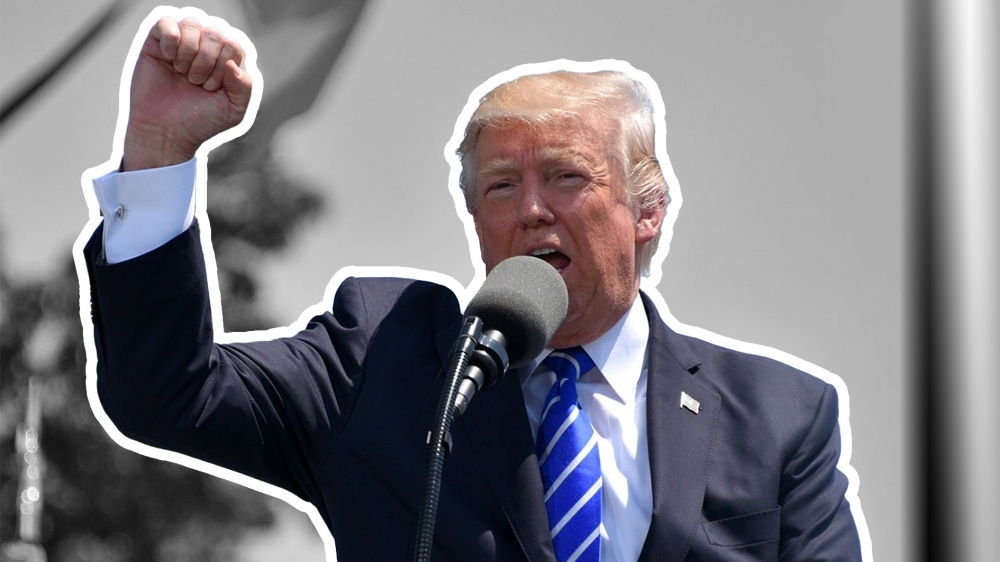Trump: Don’t say TACO. That’s a nasty question

JAKARTA – The acronym TACO (Trump Always Chickens Out), used by figures in the financial industry to describe US President Donald Trump’s frequent habit of reversing decisions shortly after announcing them, is gaining traction.
Literally, “to chicken out” is an informal expression meaning to withdraw or back away, especially when faced with pressure or risk.
“Trump Always Chickens Out” implies “Trump always backs down” or “Trump always retreats.”
In this context, the phrase mocks Trump’s tendency to make bold threats—such as tariffs or sanctions—only to walk them back before they are fully implemented.
In the Oval Office, West Wing, Washington DC, on Wednesday (28/5), President Donald Trump was asked by a journalist about the rising popularity of TACO on Wall Street, as reported by Economictimes.Indiatimes.
His reaction was immediate and blunt. “I chicken out? Oh, I’ve never heard of that,” he replied with a grin. Then came a defensive tone. “But don’t ever say what you just said,” Trump told the reporter.
“That’s a nasty question. I think it’s the nastiest question.”
The term, coined by Financial Times columnist Robert Armstrong, describes a trend investors say they’ve repeatedly observed. When Trump announces aggressive new tariffs, markets typically fall.
But when he retreats—sometimes within days—the markets rebound. It’s become a sort of playbook on the trading floor.
Armstrong, who writes the Unhedged newsletter for the Financial Times (FT), explained how the idea came about.
“I needed a quick way in my newsletter to describe this pattern. It’s an important one in the market. Maybe I was also hungry, so I came up with the acronym TACO,” he told Axios.
Initially an inside joke, the term soon appeared in broker notes, and eventually as media headlines—and now, even as a direct question to the president himself.
Investors have been tracking the pattern closely. After Trump’s latest threat to impose a 50% tariff on EU imports from 1 June, stocks briefly slumped.
But when he delayed the move to 9 July after a call from European leaders, markets rallied following the Memorial Day holiday.
“TACO trades are real,” said one anonymous Wall Street trader.
“Every time there’s a threat, you just wait for the reversal. It’s like Trump’s tell at the poker table.”
Trump’s tariff manoeuvres have become increasingly frequent—and unpredictable. Earlier this year, he hiked tariffs on Chinese imports to as high as 145%.
But after investor backlash and diplomatic efforts, he reduced them—first to 100%, then ultimately to 30%. Traders now see Trump’s initial threats as bluffs and wait for the reversal before re-entering the market.
“You call that chickening out?” Trump retorted when asked about TACO. “That’s called negotiation,” he said. “If I get them to fold, I drop the number.”
He pointed to the recent developments with the European Union. Last week, Trump threatened to impose 50% tariffs on EU goods starting 1 June. Stocks plunged.
But within days, he announced a delay to 9 July after what he described as promising talks.
“They called up and said, ‘Please, let’s meet right now. So I said, okay.” Trump said.
Trump insisted this was part of a strategy to force other countries to the negotiating table. “If I get them to fold, I drop the number.” (DH/MT/ZH)